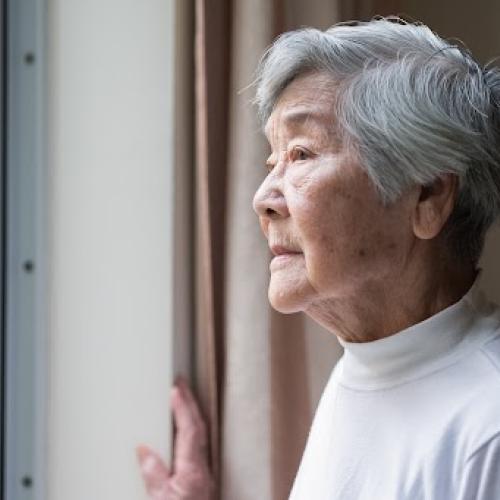
PhD in Clinical Psychology
Advanced Clinical Training & Research Leadership
At the Forefront in Clinical Psychology
As a PhD candidate at Palo Alto University, you’ll engage in a comprehensive curriculum covering key areas: theoretical foundations of psychology, research methodologies, psychological assessment, psychotherapy, and clinical practice. Our evidence-based training ensures students are prepared to excel as both clinicians and researchers, while emphasizing the broader responsibilities of psychologists to their communities and society.
PAU stands at the forefront of integrating technology, psychology, and counseling. 90% of our doctoral students accept a new postdoc, residency, or other training position upon graduation, while 97% secure internships at APA accredited sites.
Our program offers diverse career pathways in settings such as:
- Medical facilities (e.g., VA, hospitals)
- State hospitals
- Community mental health agencies
- Correctional facilities
- Private practice
- Military health settings
- Integrative healthcare centers
- Research and academic roles
Why Choose PAU for Your PhD in Clinical Psychology?
Advanced Clinical Training: Gain hands-on experience through practica and internships, preparing you to address diverse clinical challenges. 97% of our students secure internships at APA accredited sites.
Extensive Research Opportunities: Collaborate with distinguished faculty in cutting-edge research, enhancing both clinical and academic career prospects.
Specialized Areas of Emphasis: Customize your education with tracks in Forensic Psychology, Neuropsychology, LGBTQ Psychology, and more, building expertise in high-demand fields.
Supportive, Accredited Program: Benefit from a cohort-based structure, personalized mentorship, and the credibility of an APA-accredited program that opens doors to licensure and career opportunities. PAU develops well-rounded, culturally competent clinical psychologists, ready to make a meaningful impact in mental health.
Where Our PhD Graduates Go Next
PAU PhD graduates are prepared to lead—with 97% securing APA-accredited internships and 90% entering postdoc or training roles right after graduation.
Whether your path leads to academic research, clinical practice, or public service, you’ll be supported at every step.
The PhD in Clinical Psychology program admits students once a year for the fall term, which starts in September.
90%
of graduates accept a postdoc, residency, or training position after graduation
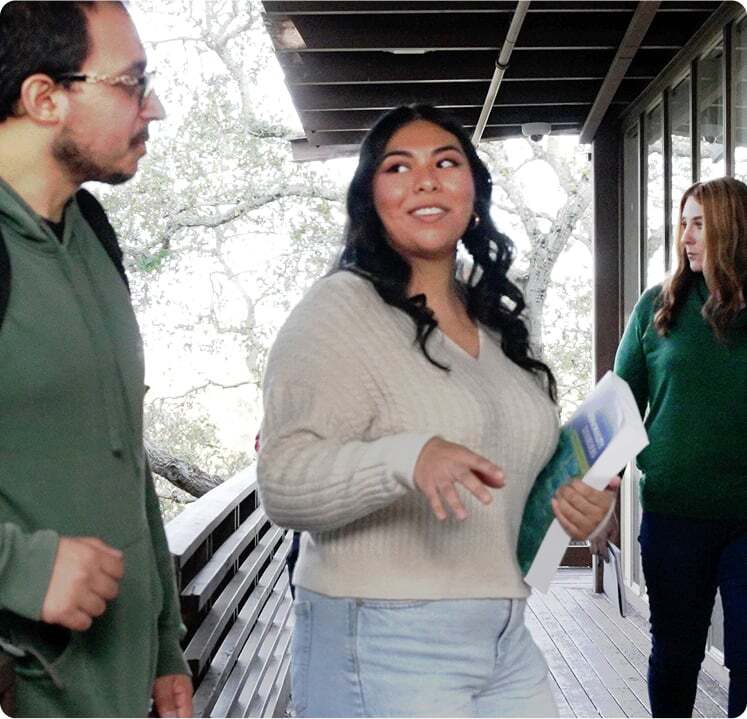
What Sets PAU Apart
- APA-Accredited Since 1988
Trusted foundation for licensure and long-term credibility - Cohort & Mentorship Model
Personalized support from expert faculty and peers - Hands-On Clinical & Research Opportunities
Extensive practicum, internship, and lab experience
Program Highlights
Professional Excellence & Leadership
Cultural Competence & Inclusion
Comprehensive, Evidence-Based Training
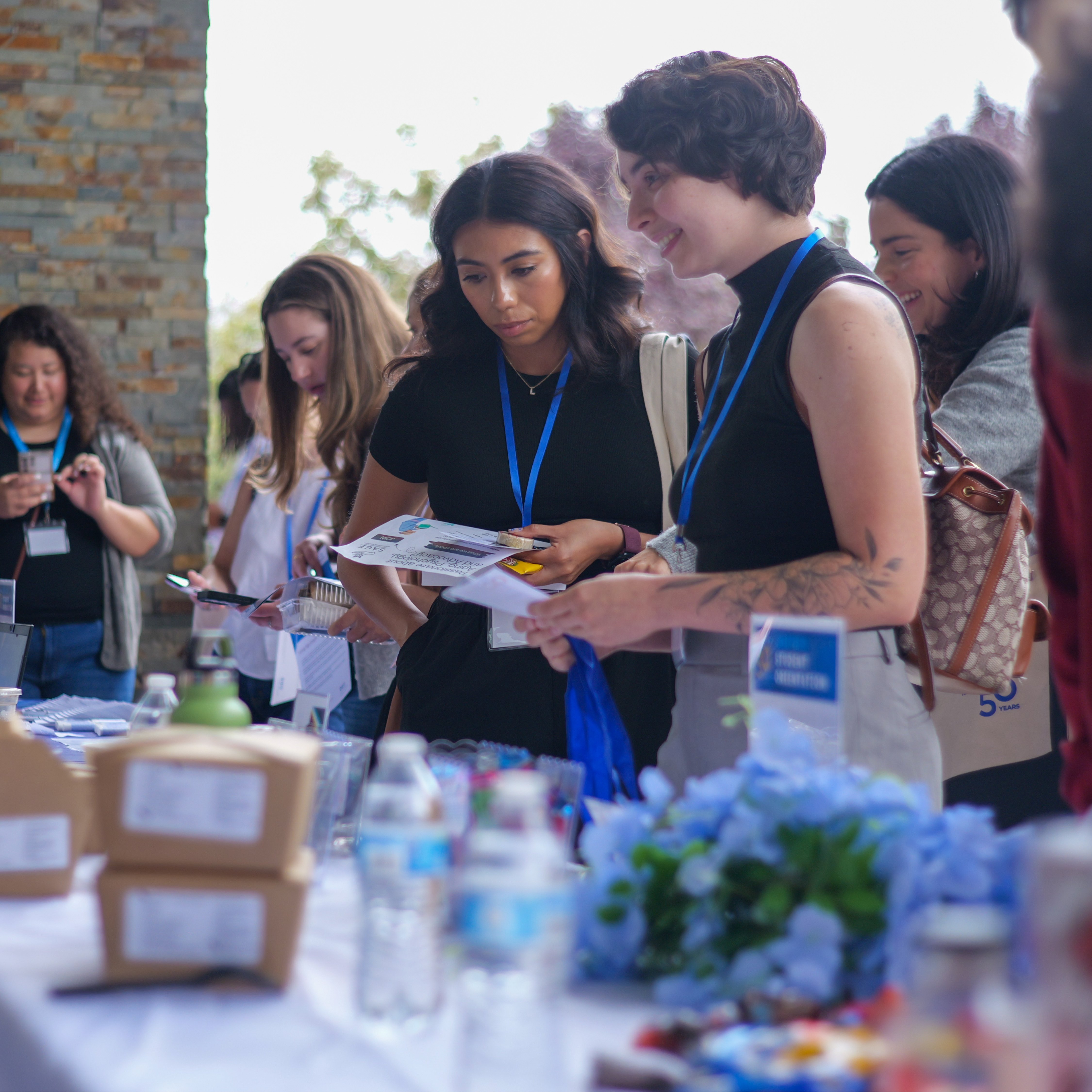
Who Should Apply?
- Mental health professionals and researchers seeking advanced clinical and research skills.
- Individuals dedicated to cultural competence, social justice, and advocacy in mental health.
- Non-traditional students aiming to transition into or deepen their expertise in clinical psychology.
- Aspiring educators, leaders, and recent graduates looking to advance their careers and drive change in the field of clinical psychology.
PhD Area of Emphasis
Your core PhD training at PAU provides broad and general preparation through the integration of scholarship, professional experience, and research with our practitioner-scientist training model.
We also offer optional specialized training in seven key emphasis areas – all in high demand and focused on building additional knowledge and experience within a focused field of clinical psychology.
Application Deadline:
- Application Review Begins: November 1, 2025
-
Regular Consideration Deadline: January 14, 2026
The PhD in Clinical Psychology program admits students once a year for the fall term, which starts in September.
View Admission Details Here
"I Get to Do Such Awesome Research and Work with Children"
“Now I get to do such awesome research and work with children. I feel gratified to be contributing to the field in even small ways,” Read the full story here: Shirin Aghakhani: From Undergraduate to PhD - A Journey of Growth and Impact at PAU
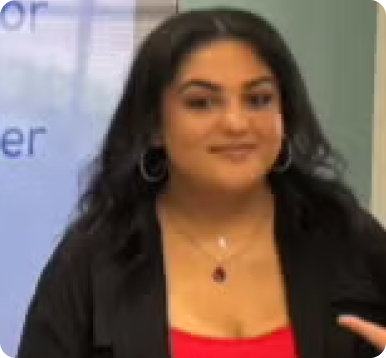
Shirin Aghakhani
"I'm Happy to Have Found a Career That I Love"
“It’s important for graduates to fully understand the requirements for their career. Mine requires a two-year fellowship upon PhD completion, which of course takes more time. I’m happy to have found a career that I love and look forward to conducting more impactful research.”

Dr. Sara Lorkiewicz PAU Alumna
"Strong Internships Placements and Industry Connections"
“PAU came highly recommended for its strong internship placements and industry connections, which made it an easy choice for me.”
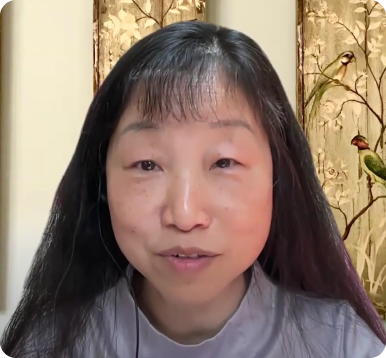
Maggie Tsai
"Small Cohort Where You Have a Great Student to Faculty Ratio"
“The reason I chose PAU is because I found a true sense of belonging here, and there's this focus on a small cohort where you have a great student to faculty ratio. And to me, that was quite important. That's the support I needed. You're made to feel welcome from day one.”
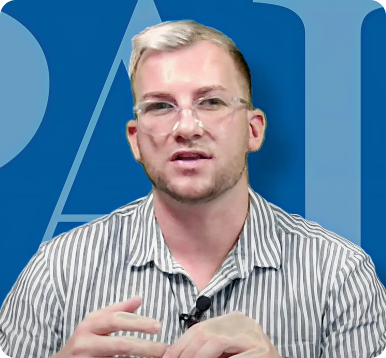
David Rouxel PhD in Clinical Psychology Student
"Living Up to Their Mission"
“The hope PAU gave me. It has been indescribable, because I didn't think I would be where I am today and, thanks to PAU, like PAU made that happen. So they're definitely living up to their mission.”
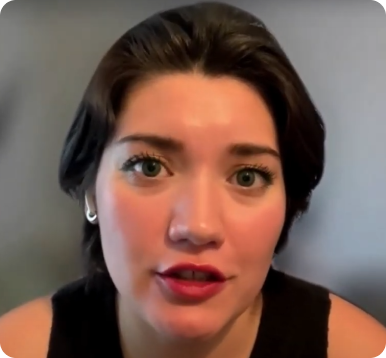
Javi Garces BS in Psychology and Social Action Student
"A Sense of Community is One of the Major Assets"
“We have a culture here in the University of support among cohorts and students and even across different cohorts. That is something that also is very helpful. And I think that the university actively stimulates these types of spaces. Having a sense of community is one of the major assets that you get here at PAU.”
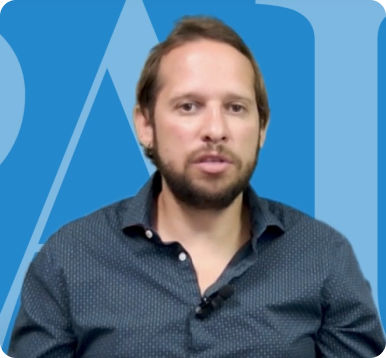
Michel Rattner PhD in Clinical Psychology Student
Learn More About Our Psychology Department & Expert Faculty
Opportunities for PhD in Clinical Psychology Students
As a student at PAU, you will have access to specialized research groups and clinical training opportunities through the Clinics @ PAU, a community-based psychology training clinic and treatment center dedicated to providing high quality, evidence-based, clinical services to adults, older adults, adolescents, children, and families in the community.
Palo Alto University requires all students to complete 2,000 hours of supervised professional internship experience. These hours fulfill the pre-doctoral internship hours requirement by the State of California Board of Psychology and other states (subject to individual state licensing boards), among other requirements for eligibility to take the licensing examination.
PhD in Clinical Psychology program students receive intensive faculty mentoring and resources, and 97% secure internships at APA accredited sites.
Additional clinical training resources available at the PhD Clinical Training website.
PhD Clinical Psychology Student Internships Previous Site Examples:
- Aurora Mental Health Center
- Casa Pacifica Centers for Children & Families
- Columbia University Medical Center, NY
- Florida State Hospital
- Marin County Health and Human Services
- Metropolitan Detention Center
- Nationwide Children’s Hospital
- Patton State Hospital
- Rush University Medical Center
- Rutgers Biomedical and Health Sciences
- Saint Elizabeths Hospital, Washington DC
- Texas State University
- Tulane University School of Medicine
- University of California, San Francisco Department of Psychiatry – Child and Adolescent Services
- University of Nebraska Internship Consortium in Professional Psychology
- University of Wisconsin-Madison Counseling Center
- Waianae Coast Comprehensive Health Center (WCCHC)
U.S. Department of Veterans Affairs. PAU has an extensive partnership with the Veterans Affairs Healthcare system. Contact the PhD Clinical Training office to learn more about specific site partnerships.
Learn More about The Community Clinic (formerly the Gronowski Center)
Students enrolled in the PhD in Clinical Psychology program are required to complete clinical practicum training. Training sites are generally local service agencies and research programs that have been approved by the PhD Clinical Training faculty as consistent with the program training objectives, especially the emphasis on evidence-based practices.
Students in the PhD in Clinical Psychology program receive professional advising and resources throughout the application and completion of their practica.
In addition to the Community Clinic (formerly the Gronowski Center), practicum sites include*:
- Asian Americans for Community Involvement
- City of Fremont Youth and Family Services
- Community Health Awareness Council (CHAC)
- El Camino Hospital
- Goodwill of the Silicon Valley
- LifeMoves
- San Francisco Institute on Aging
- Kaiser Permanente Redwood City (Adult Neuropsychology; Child and Family psychotherapy)
- Marin County Health and Human Services
- Notre Dame de Namur University Counseling Services
- Jail Psychiatric Services (San Francisco County)
- San Jose Job Corps
- San Mateo County Mental Health Services Division, Youth Services Center (juvenile detention)
- Santa Clara Valley Medical Center
- State of California - Department of Rehabilitation
- UCSF Memory and Aging Center & Epilepsy Center
- VA Palo Alto:
- Spinal Cord Injury Unit (inpatient and outpatient)
- Neuropsychological Assessment and Intervention
- First Step (substance abuse)
- VA San Francisco
Students already receiving services from PhD Clinical Training faculty may visit the Google Site for student-only information, such as application materials and advising resources.
PhD Clinical Training Administration
Supporting PhD Clinical Psychology students through mentoring and clinical placement. Our Faculty Provide:
- Close faculty advising for students applying to practicum and internship.
- Mentoring and intensive professional development advising throughout clinical training.
- Review of practicum sites for quality assurance.
Learn More About Our Research Labs
At Palo Alto University, our PhD students have the unique opportunity to engage in cutting-edge research through our diverse range of faculty-led research labs. These labs focus on various areas of psychology, including forensic psychology, neuropsychology, and LGBTQ studies, allowing students to contribute to groundbreaking research that shapes the future of the field.
Participation in these labs not only enhances students' academic experience but also prepares them for successful careers in both clinical practice and academia by providing hands-on research experience and fostering mentorship with leading experts in the field.
All students in the PhD Clinical Psychology Program are required to participate in faculty-led research groups during their second and third years in the program – for 6 consecutive quarters.
Browse PAU's Research Labs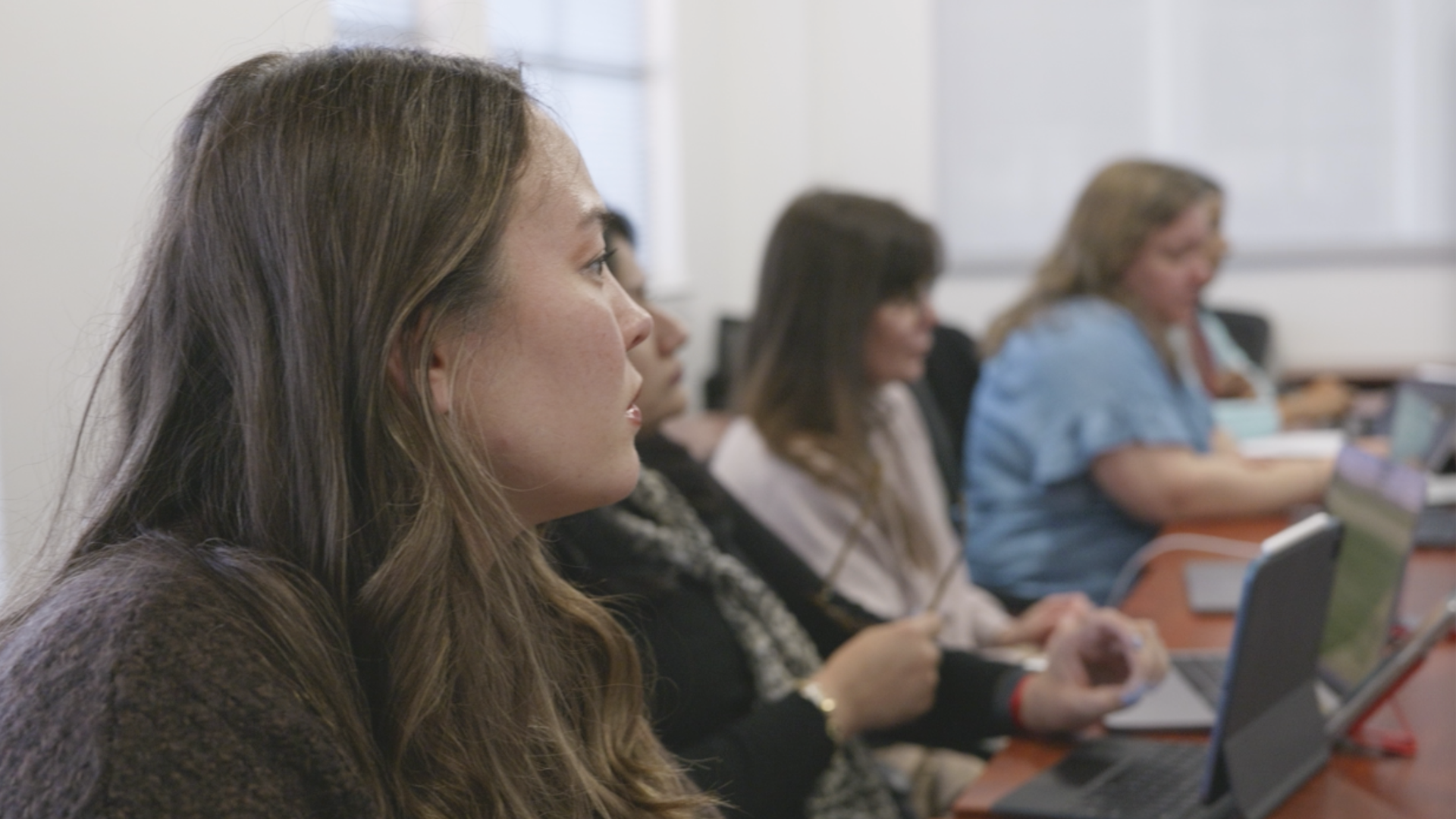
BS in Psychology
Admissions Requirements
+Applicants must hold a bachelor's degree from a regionally-accredited institution or the international equivalent. For applicants to the MA in Clinical Mental Health Counseling Online program, you must be located in a state in which we are authorized to provide online education. While no prerequisites are required to apply, we strongly recommend applicants to have related volunteer or work experience in the mental health field.
GRE scores are not required for admissions to PAU master's degree programs. GRE scores will not be considered in the review of applications, even if students provide them.
Palo Alto University offers students a multicultural focus that emphasizes culture, social justice, and families that students experience in weekly live classes. Students benefit from the latest academic research and clinical approaches while tailoring their experience to the culture and community in which they live and practice, all in a program format that fits into their busy lives.
- The hybrid program is offered weekday evenings. Courses are held on the PAU campuses or live via Zoom.
- Classes take place Monday-Thursday evenings from 4-6 pm or 6-8 pm or 6-8:50 pm, depending on the cohort.
- All skill-based clinical work is done in an appropriate clinical or classroom setting
With the time savings from your online classes, you will be able to take three classes per quarter – which means earning your degree in just nine quarters. Staying local while participating in a distance learning (online) master’s degree program gives students the best of both worlds.
Online: Distance Learning Format
+Applicants must hold a bachelor's degree from a regionally-accredited institution or the international equivalent. For applicants to the MA in Clinical Mental Health Counseling Online program, you must be located in a state in which we are authorized to provide online education. While no prerequisites are required to apply, we strongly recommend applicants to have related volunteer or work experience in the mental health field.
GRE scores are not required for admissions to PAU master's degree programs. GRE scores will not be considered in the review of applications, even if students provide them.
Palo Alto University offers students a multicultural focus that emphasizes culture, social justice, and families that students experience in weekly live classes. Students benefit from the latest academic research and clinical approaches while tailoring their experience to the culture and community in which they live and practice, all in a program format that fits into their busy lives.
- The hybrid program is offered weekday evenings. Courses are held on the PAU campuses or live via Zoom.
- Classes take place Monday-Thursday evenings from 4-6 pm or 6-8 pm or 6-8:50 pm, depending on the cohort.
- All skill-based clinical work is done in an appropriate clinical or classroom setting
With the time savings from your online classes, you will be able to take three classes per quarter – which means earning your degree in just nine quarters. Staying local while participating in a distance learning (online) master’s degree program gives students the best of both worlds.
MA in Counseling Residencies: Residency Information
+Applicants must hold a bachelor's degree from a regionally-accredited institution or the international equivalent. For applicants to the MA in Clinical Mental Health Counseling Online program, you must be located in a state in which we are authorized to provide online education. While no prerequisites are required to apply, we strongly recommend applicants to have related volunteer or work experience in the mental health field.
GRE scores are not required for admissions to PAU master's degree programs. GRE scores will not be considered in the review of applications, even if students provide them.
Palo Alto University offers students a multicultural focus that emphasizes culture, social justice, and families that students experience in weekly live classes. Students benefit from the latest academic research and clinical approaches while tailoring their experience to the culture and community in which they live and practice, all in a program format that fits into their busy lives.
- The hybrid program is offered weekday evenings. Courses are held on the PAU campuses or live via Zoom.
- Classes take place Monday-Thursday evenings from 4-6 pm or 6-8 pm or 6-8:50 pm, depending on the cohort.
- All skill-based clinical work is done in an appropriate clinical or classroom setting
With the time savings from your online classes, you will be able to take three classes per quarter – which means earning your degree in just nine quarters. Staying local while participating in a distance learning (online) master’s degree program gives students the best of both worlds.
Tuition & Fees
+Applicants must hold a bachelor's degree from a regionally-accredited institution or the international equivalent. For applicants to the MA in Clinical Mental Health Counseling Online program, you must be located in a state in which we are authorized to provide online education. While no prerequisites are required to apply, we strongly recommend applicants to have related volunteer or work experience in the mental health field.
GRE scores are not required for admissions to PAU master's degree programs. GRE scores will not be considered in the review of applications, even if students provide them.
Palo Alto University offers students a multicultural focus that emphasizes culture, social justice, and families that students experience in weekly live classes. Students benefit from the latest academic research and clinical approaches while tailoring their experience to the culture and community in which they live and practice, all in a program format that fits into their busy lives.
- The hybrid program is offered weekday evenings. Courses are held on the PAU campuses or live via Zoom.
- Classes take place Monday-Thursday evenings from 4-6 pm or 6-8 pm or 6-8:50 pm, depending on the cohort.
- All skill-based clinical work is done in an appropriate clinical or classroom setting
With the time savings from your online classes, you will be able to take three classes per quarter – which means earning your degree in just nine quarters. Staying local while participating in a distance learning (online) master’s degree program gives students the best of both worlds.
General Grad Degree Requirements
+Applicants must hold a bachelor's degree from a regionally-accredited institution or the international equivalent. For applicants to the MA in Clinical Mental Health Counseling Online program, you must be located in a state in which we are authorized to provide online education. While no prerequisites are required to apply, we strongly recommend applicants to have related volunteer or work experience in the mental health field.
GRE scores are not required for admissions to PAU master's degree programs. GRE scores will not be considered in the review of applications, even if students provide them.
Palo Alto University offers students a multicultural focus that emphasizes culture, social justice, and families that students experience in weekly live classes. Students benefit from the latest academic research and clinical approaches while tailoring their experience to the culture and community in which they live and practice, all in a program format that fits into their busy lives.
- The hybrid program is offered weekday evenings. Courses are held on the PAU campuses or live via Zoom.
- Classes take place Monday-Thursday evenings from 4-6 pm or 6-8 pm or 6-8:50 pm, depending on the cohort.
- All skill-based clinical work is done in an appropriate clinical or classroom setting
With the time savings from your online classes, you will be able to take three classes per quarter – which means earning your degree in just nine quarters. Staying local while participating in a distance learning (online) master’s degree program gives students the best of both worlds.
Cohort Model
PAU’s on-campus format uses a cohort system. You will be assigned to a group of students who will have the same schedule and sequence of courses for their entire program. You will be enrolled continuously and to complete your degree on schedule with their cohort.
Why Cohorts?
Support and openness – you will study together, encouraging and assisting others when needed. You will also develop the familiarity and trust to discuss tough issues and personal experiences.
Cohort Model
PAU’s on-campus format uses a cohort system. You will be assigned to a group of students who will have the same schedule and sequence of courses for their entire program. You will be enrolled continuously and to complete your degree on schedule with their cohort.
Why Cohorts?
Support and openness – you will study together, encouraging and assisting others when needed. You will also develop the familiarity and trust to discuss tough issues and personal experiences.
Cohort Model
PAU’s on-campus format uses a cohort system. You will be assigned to a group of students who will have the same schedule and sequence of courses for their entire program. You will be enrolled continuously and to complete your degree on schedule with their cohort.
Why Cohorts?
Support and openness – you will study together, encouraging and assisting others when needed. You will also develop the familiarity and trust to discuss tough issues and personal experiences.
Cohort Model
PAU’s on-campus format uses a cohort system. You will be assigned to a group of students who will have the same schedule and sequence of courses for their entire program. You will be enrolled continuously and to complete your degree on schedule with their cohort.
Why Cohorts?
Support and openness – you will study together, encouraging and assisting others when needed. You will also develop the familiarity and trust to discuss tough issues and personal experiences.
Online & Hybrid Learning Format
The hybrid program is offered weekday evenings. Courses are held on the PAU campuses or live via Zoom.
Classes Take Place:
Monday-Thursday Evenings
4-6PM PST or 6-8PM PST or 6-8:50PM PST (Depending on Cohort)
All skill-based clinical work is done in an appropriate clinical or classroom setting. And with the time savings from your online classes, you will be able to take three classes per quarter – and that means earning your degree in just nine quarters.
Staying local while participating in a distance learning (online) master’s degree program gives students the best of both worlds.
Palo Alto University offers students a multicultural focus that emphasizes culture, social justice, and families that students experience in weekly live classes. Students benefit from the latest academic research and clinical approaches while tailoring their experience to the culture and community in which they live and practice, all in a program format that fits into their busy lives.
The hybrid program is offered weekday evenings. Courses are held on the PAU campuses or live via Zoom.
Classes Take Place:
Monday-Thursday Evenings
4-6PM PST or 6-8PM PST or 6-8:50PM PST (Depending on Cohort)
All skill-based clinical work is done in an appropriate clinical or classroom setting. And with the time savings from your online classes, you will be able to take three classes per quarter – and that means earning your degree in just nine quarters.
Staying local while participating in a distance learning (online) master’s degree program gives students the best of both worlds.
Palo Alto University offers students a multicultural focus that emphasizes culture, social justice, and families that students experience in weekly live classes. Students benefit from the latest academic research and clinical approaches while tailoring their experience to the culture and community in which they live and practice, all in a program format that fits into their busy lives.
Admissions Requirements
Applicants must hold a bachelor's degree from a regionally-accredited institution or the international equivalent.
In addition to the required prerequisites, we strongly recommend applicants have related volunteer or work experience in the mental health field and experience with research.
GRE scores are not required for admission to PAU doctoral degree programs.
PhD in Clinical Psychology Admissions
PhD in Clinical Psychology Degree Requirements
The PhD in Clinical Psychology program takes an average of five years to complete and is open to individuals who hold a bachelor's or master's degree and have completed the prerequisites prior to applying for admission. Space in the program is limited, and students must complete each step of the admissions process to be considered for admission.
The PhD program requires a minimum of 3 full-time academic years of graduate study.
- Full-time is defined as at least 27 units per year.
- Starting in Year 5, full-time is defined as a minimum of 3 units per quarter.
- At least 2 of the 3 academic training years (Years 1–3 required coursework) must be completed in residence at PAU's PhD program.
- At least 2 years must be completed in full-time residence.
Graduation Requirements
Academic Training:
- 150 units of required academic coursework
- 18 elective units
- The total of 168 units typically takes three years for full-time attendees.
Clinical Training:
- Minimum of two full-time practicums (completed in Years 2 and 3)
- Optional: an additional elective practicum in Year 4, plus supplemental part-time practica after Year 1
- During the final year, students complete a 2,000-hour internship.
Research:
- An empirical dissertation (most work occurs in Year 4)
- Make a significant contribution to a peer-reviewed journal article, book chapter, or other scholarly publication
Milestones:
- Oral Clinical Competency Exam
- 3 written exams: research competency, clinical competency, and assessment competency
- Dissertation (minimum 30 units)
- Internship (12 units)
- At least two years of practicums
Research and Clinical Experience
All students in the PhD Clinical Psychology Program are required to participate in faculty-led research groups during their second and third years in the program – for 6 consecutive quarters.
We strongly recommend applicants have related volunteer or work experience in the mental health field and experience with research. Feel free to include non-psychology research experience.
For applicants with no formal research experience, including research conducted within an academic class may be helpful and may be a way to highlight one’s preparation for doctoral-level study. Feel free to include papers or projects underway but not complete at the time of application.
PhD in Clinical Psychology Prerequisites
Applicants to the PhD in Clinical Psychology program must have completed all prerequisite courses before the first day of classes. Prerequisite courses do not need to be completed before students submit their applications to the program. However, students with substantial exposure to undergraduate-level coursework in psychology may be viewed as better prepared for doctoral-level work.
- Abnormal Psychology
- Topics should include theories and historical perspectives of mental illness, sociocultural considerations in the diagnosis and treatment of mental illness, and separate weeks covering major categories of disorders.
- Biological Psychology
- Topics should include basic brain/nervous system anatomy and functioning, including basic cellular and biochemistry processes, as well as sensation/perception, motor functioning, sleep/dreaming, and biological aspects of learning, memory, cognition, emotions, motivation, and mental health.
- Statistics
- Topics should include descriptive statistics, inferential statistics, populations and samples, frequency distributions (normal curve), sampling error, confidence intervals, effect sizes, scales of measurement (e.g., nominal, ordinal, interval, ratio), and appropriate statistical analyses for variables based on type (e.g., chi-square, t-test, ANOVA, correlation).
These courses sometimes go by other titles, depending on the institution. If you have questions about whether a course will satisfy a prerequisite requirement, please contact the Office of Admissions.
Many students complete their prerequisites while completing their Bachelor's degree. You may also complete these courses independently if you have not done so. Guidelines for prerequisite courses include:
- Courses should be completed from a college or university.
- Courses should be completed at the undergraduate level (high school or AP courses are not acceptable). However, courses do not need to be completed at the upper-division (300 or 400-level) level. Courses may be taken at a community college; this is often the most cost-effective option.
- Courses may be taken online (synchronous or asynchronous) or in-person.
- Courses should be passed with a grade of "B" or better. Pass/no pass grades may be approved on a case-by-case basis. Please reach out to the Office of Admissions to discuss this.
- Final grades must be available to the Office of Admissions before the first day of class. Official transcripts are required for all prerequisite courses.
Where Can I Take These Courses?
We generally recommend that students first reach out to their local community colleges. Most community colleges offer these courses to students in Psychology associate's degree programs and are usually low-cost options. If you are crunched for time, both National University and the University of Phoenix offer short-term courses that may be completed in as few as four weeks.
What is the Curriculum and Coursework for the PhD program?
Graduate course work in psychological theory provides a firm grounding in scientific psychology and places current theory and research in the larger context of the history of psychology as a discipline. The curriculum examines human behavior from many perspectives. Courses address the biological, cognitive, and affective bases of behavior, social and cultural influences on human development and behavior, individual differences, as well as the psychology of multicultural and special interest groups. The graduate courses required in this can be found in our course catalog,
Tuition and Cost
Visit our Tuition and Cost page on our website.
Financial Aid & Scholarships
Contact our Financial Aid department to learn more.
General Grad Requirements
Click here here to see general grad requirements. Or, request information from our admissions team to learn more.
How to Apply
PAU uses the American Psychological Association’s (APA), Psychology Centralized Application Service (psychologyCAS). In preparation for applying, you will need a copy of your transcript(s) available for your review. All materials should be submitted through the psychologyCAS system, not directly to the PAU Admissions Office.
- Online Application via psychologyCAS
- Application Fee
- Official Transcripts
- Resume or CV
- Three Letters of Recommendation
- Statement of Purpose
Once You’ve Applied
PAU aims to attract and educate students who are distinguished by their academic achievement, capacity for critical thinking, interpersonal skills, motivation to become exceptional clinicians, and commitment to service.
Each application is given a comprehensive review by the admissions committee. All aspects of the application, including academic record, professional and/or research experience, and strong recommendations are qualities carefully considered. In addition, PAU actively seeks to recruit and enroll a student body that is both highly qualified and richly diverse. Thus, factors such as the quality of early educational environment, socioeconomic status, culture, race, ethnicity, and life or work experiences are also considered.
Based on an initial review of PhD applications, qualified applicants are invited to participate in one of our PhD Interview Weekends to meet faculty and students and learn more about the program and co-curricular offerings.
Interview Weekends are entirely virtual, making them accessible no matter your location.
Interviews are meant to be a two-way conversation between applicants and the University. The University seeks students who are an excellent fit for our classrooms, labs, and greater community and represent our nation's diversity and our world. But interviews are also an opportunity for applicants to evaluate PAU and the PhD in Clinical Psychology program. It is important that you identify that PAU is aligned with your values, your research interests, and your career aspirations. For that reason, we encourage you to engage, ask questions, and reflect carefully on your experience.
Given the rigor of the program and the university's core values, the PhD faculty seek students who embody:
- Unshakable ethical standards
- Resilience
- Cultural humility
- Openness to learning and to others' lived experiences
- A belief in the inherent dignity of all humans
- A desire to improve the human condition
- Self-awareness
- Seeks and is open to constructive feedback
- Empathy and kindness
-1.webp?width=1000&height=667&name=Allen-Calvin-Campus-20220524%20Palo%20Alto%20University%20-%20NEG%200548%20(3)-1.webp)
Office of Admissions
At Palo Alto University, we’re eager to help you take the next step in your education. You might be advancing your studies, changing direction, or exploring new opportunities—our Admission and Outreach team is ready to guide you with personalized support.
Michel Rattner, PhD in Clinical Psychology Student
"“We have a culture here in the University of support among cohorts and students and even across different cohorts. That is something that also is very helpful. And I think that the university actively stimulates these types of spaces. Having a sense of community is one of the major assets that you get here at PAU.”"
Frequently Asked Questions
Can I Apply to the PhD and PsyD Simultaneously?
You are welcome to apply to both the PhD and PsyD concurrently. Your applications will be reviewed separately by the two Admissions Committees, and the processes will generally run independently of each other.
There is no penalty for applying to both programs – we do encourage you to be clear about how each program is a good fit for your academic and professional interests.
- You should submit two Statements of Purpose, which address the distinct reasons for applying to each.
Steps:
- Start an application for the PsyD program in psychologyCAS.
- In the "Program Materials" section, select "yes" to the question: "Would you also like to have your application considered for admission to PAU's PhD in Clinical Psychology program?"
- In the "Optional Documents" section, upload your additional personal statement specific to the PhD program.
PAU is atypical in terms of how students apply to research labs. Rather than applying directly to a research lab or faculty member, students apply to the PAU PhD program in general.
- Students can explore the broad range of labs available during the first year and even volunteer in labs.
- This allows students to make informed decisions about which labs they wish to apply to.
- Students apply for labs in the Spring of their first year.
During the application process, we encourage students to mention a few faculty members with whom they would like to work. However, this is not binding.
How long will it take to earn my PhD at PAU?
Although the PhD program is designed to be completed within five years of coursework and practica, many students take an additional year to complete their degree. Students must complete their degree within 7 years. The number of years it takes to complete the PhD program will depend on your individual needs and professional goals:
- Post-graduate career goals
- Competitiveness of clinical and research training sites
- Internship aspirations and restrictions
- Practicum placements and performance
- Research opportunities, dissertation progress, publications and presentations
- Satisfactory academic progress
The PhD program is accredited by the American Psychological Association (APA) and follows their Benchmark Evaluation System to assess whether a student has met the competency benchmarks in professional psychology.
Also visit our PREREQUISITES page to learn more. But Admissions Counselors are here to help with your transcript evaluation.
What is the Recommended GPA for the PhD in Clinical Psychology?
We strongly recommend applicants have at least a 3.0 cumulative grade point average.
I would like to apply to the PhD and PsyD. Should I submit two personal statements?
Yes. Although both programs are committed to training clinical psychologists, the programs have different strengths, training missions, structure, and faculty. You do need to write separate statements of purpose for each program.
To apply to both programs:
- Start an application for the PsyD program in psychologyCAS.
- In the "Program Materials" section, select "yes" to the question that asks, "Would you also like to have your application considered for admission to PAU's PhD in Clinical Psychology program?"
- In the "Optional Documents" section, upload your additional personal statement specific to the PhD program.
Question #: Do I need a Master’s Degree?
Students are not required to have a master’s degree, and there is no preference given to students with master’s degrees. There is also no penalty for having a master’s degree.
Grades from both the undergraduate and graduate levels are considered in the selection of students. Admissions Committee members do pay attention to trends in grades over time.
What is the Personal Statement Criteria?
The purpose of the personal statement is to provide a sample of the applicant’s ability to write in an academic and professional manner, as well as to learn about any qualifications or life events that were not captured in the application.
Formatting: Double space, and limit to 1000 words.
We recommend that you reflect on the following questions as you develop your essay:
- Why are you pursuing a PhD in clinical psychology? What led to this interest?
- What are your long-term professional goals?
- What are your research interests (including faculty you want to work with, and why)?
- How will a PhD from PAU help you to achieve your goals?
In your essay, you may also wish to include reflections about the following:
- Experience with and/or commitment to serving minoritized and marginalized populations
- Personal qualities that will facilitate success as a graduate student and future psychologist
Is work study a part of this degree?
Work-study awards are part of the financial aid package. Once awarded work-study, students may apply for any work-study job on the PAU campus. While it is technically possible for students to use their work-study award at Stanford, it is rare.
International students are generally allowed to work on campus but should check with the International Students Office to ensure an on-campus position is permitted based on visa type.
Transfer Credit Criteria
| Requirement | Details |
|---|---|
| Graduate Level | Only graduate-level courses are acceptable for transfer credit. A graduate-level course is any course for which a student received graduate credit at their previous institution(s). This may include graduate-level courses the student took as an undergraduate. |
| Acceptable Grades | A grade of “B” or better is required in a graduate-level course to be acceptable for transfer credit. |
| Accreditation | Previous graduate work must have been completed at a regionally accredited institution. International coursework must be in English in order to be evaluated for transfer. |
| Time Limit for Requesting Transfer Credit | Requests for transfer of units must be completed by the posted deadline. |
| Maximum Units | A maximum of 30 units may be transferred into the PhD program. If a student receives a waiver of courses beyond the transferable units, they must take elective units to meet the total unit requirement for graduation from PAU. |
| Units Awarded | Any course can only transfer in the number of transfer units equal to the comparable course at Palo Alto University, despite the number of units previously assigned to the course. The number of units of a course the student wishes to transfer must be equal to or greater than the units of the corresponding Palo Alto University course. Palo Alto University operates on quarter academic terms. Semester credits will be converted to quarter units for evaluation using a 1.5 quarter unit per 1.0-semester unit conversion. |
| Course Obsolescence | Courses must have been completed within five years prior to the time of matriculation at PAU. |
| Syllabi | Students must provide a syllabus/syllabi for the course(s) they would like to transfer. Course descriptions are not acceptable. |
| Appeals and Exceptions | Credit transfer decisions may be appealed in writing to the Curriculum Committee. |
Transferable Courses
Transferable Courses:
- PSYS800 History & Systems
- PSYS801 Child & Adolescent Development
- PSYS802 Cognitive Bases of Behavior I
- PSYS804 Affective Bases of Behavior I
- PSYS807 Adult Development & Aging
- PSYS809 Psychopharmacology
- PSYS811 Social & Personality Psychology
- CLIN803 Psychodynamic Psychotherapy I
- CLIN806 Cognitive-Behavioral Psychotherapy I
- CLIN809 Child, Adolescent, & Family Psychotherapy
- ASMT809 Intellectual Assessment
- ASMT810 Psychometric Theory
- ASMT815 Assessment of Personality
- ASMT818 Psychopathology & Psychodiagnostics II: Child & Adolescent Disorders
- ASMT819 Psychopathology & Psychodiagnostics II: Personality Disorders
- ASMT826 Assessment of Psychopathology
- STAT809 Research Methods & Statistics II
- STAT810 Research Methods & Statistics III
Students may not receive transfer credit for any additional courses, including electives.
Fully Accredited Training
The program of study for the PhD is informed by the American Psychological Association’s (APA’s) guidelines for doctoral education in clinical psychology and emphasizes the integration of scientific research and clinical practices.
The PAU PhD in Clinical Psychology program has been accredited by the American Psychological Association since 1988.
Office of Program Consultation and Accreditation:
- American Psychological Association
- 750 First Street NE
- Washington, DC 20002-4242
- 202-336-5979
- apaaccred@apa.org
- www.apa.org/ed/accreditation
This contact information should be used for questions related to the PhD Program’s accreditation status. Any other program-related questions should be directed to the PhD Program Manager or the PhD Director of Clinical Training.
Learn more about Licensing and Accreditation @ PAU




